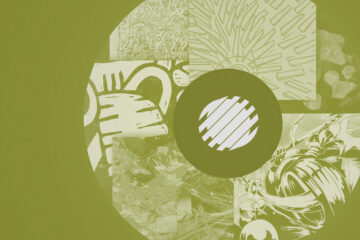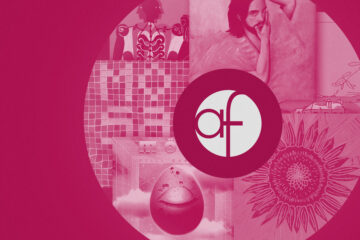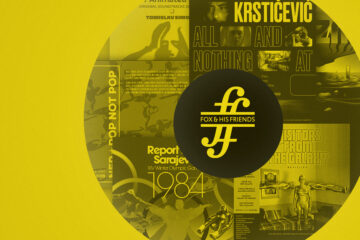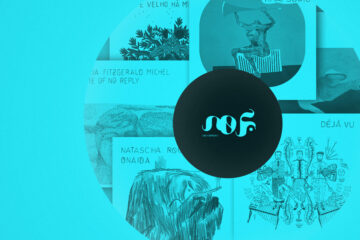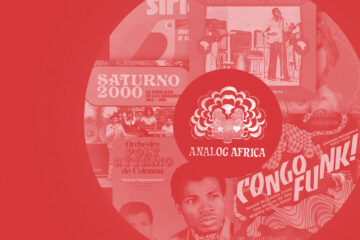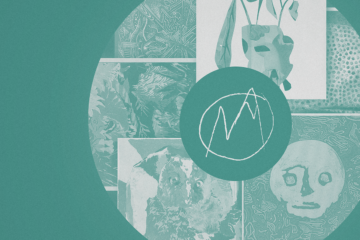Admittedly, it’s very tempting to talk to Australian Oren Ambarchi about food. Just a quick glance at his broad and extensive discography shows that someone has a keen interest and probably the necessary expertise as well. There are tracks and albums correspondingly named »Honey Pie«, »Grapes From The Estate« and »Afternoon Tea«, and if you look further you’ll find »Pad Phet Gob« on a record Ambarchi made with Crys Cole. The Thai name is a reference to a frog curry dish.
And the former drummer’s label, who is now better known as a guitarist, is called Black Truffle Records. These black truffles, the most expensive and finest of which are tracked down by specially trained pigs (and increasingly dogs) in the French regions of Périgord and Dordogne, meet their equivalent in the label’s discography in special finds from the history of experimental and avant-garde music. Ambarchi is constantly on the lookout—but this has nothing to do with the trained »craft« of the pigs: »I act as a label-maker primarily out of intuition« he says in the interview we held on the date of his performances at this year’s Monheim Triennale. »I am a music addict and a fanatic.« But where does he find the sometimes offbeat tracks and albums that appear on Black Truffle?
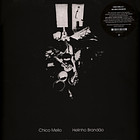
Chico Mello / Helinho Brandão
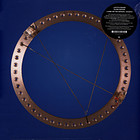
A Song For Two Mothers / Occam Ix
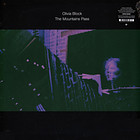
The Mountains Pass
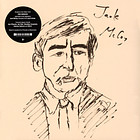
For Mccoy
The answer has two parts: On the one hand, there is the artist himself, Oren Ambarchi, who first climbed onto the stage aged 17 and has never really left it since. The son of Sephardic Jews, Ambarchi came into contact with John Zorn’s Tzadik label at an early age, belonged to the extended circle of the New York Knitting Factory and became part of the Radical Jewish Culture movement. This connection to one of the hottest hotspots of the 1990s avant-garde scene led to numerous collaborations on the borderline between (free) jazz, improvisation, drone and electronic experiments.
This led to a career that took the Australian on extensive tours of Europe, the USA and Asia, especially Japan. His home base remained Australia until 2020 (»where you can just eat fantastically because of the proximity to Asia.«). Back in 2009, Ambarchi wanted to reissue some albums that he had only released on CD—or that were no longer available. He established Black Truffle for this purpose: From the beginning, he also wanted to release records by his friends and acquaintances or even long-forgotten gems of avant-garde history. That would be the second reason for founding the label.
Everything under one roof
After 14 releases on which he himself played a part—including collaborations with Jim O’Rourke, Keiji Haino, Fennesz and Merzbow—catalogue number 15 was the first »real discovery«: An electro-acoustic improvisation by Italian composer Giancarlo Toniutti. Since then, more than 100 other releases have seen the light of day, securing the label’s legendary status, which was honoured in 2019 with a three-day festival at London’s cult club Cafe Oto.
What he can’t or won’t answer, even in the 16th year of his existence, is the question of genre and how he positions himself musically: »I find it terribly boring to talk about it«, he says, stressing that in many places—like here in Monheim—this question is no longer asked. »There are so many genres that I love. I take something from all of them for my music.«
»There are so many genres I love. I take something from all of them for my music«.
Oren Ambarchi
No wonder, then, that Black Truffle’s sound is difficult to define or grasp; each record is a new exploration of the possibilities of modern music production, drawing from field recordings and live music, from effects or raw instrumentation. Albums like David Rosenboom’s retro-futuristic Buchla synthesiser work »Future Travel« therefore sit naturally alongside the delicate, ethereal jazz album »For McCoy« by Japan’s Eiko Ishibashi.
The only question that remains is the future of the label: »I’ve already got several releases planned for next year« and referring to the festival five years ago, he notes that his big dream would be a Black Truffle festival with as many of the artists from the last 15 years as possible. Maybe it is just a pipe dream, but you can trust Oren Ambarchi to do it. It’s just my gut feeling.


